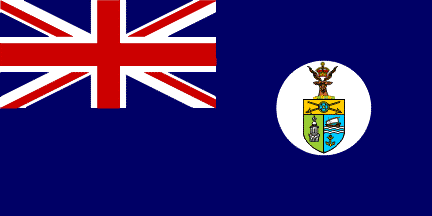After David’s post on Somalia I thought this piece might be of interest and open a few eyes at the BBC whose narratives on Empire, colonialism and immigration are increasingly naive…..Diaspora Somalis are seen as ‘foreigners’ who do not integrate, destabilise Somali society which the Somalis want to keep ‘pure and authentically Somali’ and are acting like colonialists wanting to improve the natives…….
Somalis returning to the motherland are finding their foreign ways out of favour: Nadifa Mohamed
Hargeisa, the capital of Somaliland, is transformed between June and September every year as Somalilanders arrive from Europe, north America, the Gulf and the rest of Africa. Traffic jams clog the rough roads, salons fill up, hipster beards and skinny jeans appear, hijabs slip and skirt hems rise. It’s an important boost to the local economy.
Recently, though, appreciation for the returnees has shown signs of ebbing away, and there are a growing number of complaints about the visitors: that London boys are selling drugs from their hire cars; that gangs from Copenhagen are fighting gangs from other countries; that girls from Toronto are teaching local girls to dress and behave improperly.
Sign up to our Bookmarks email Read more The nationalities of those blamed change regularly, but the persistent refrain is “those” people are bringing their “foreign” ways to a country that the year-round residents are trying to keep pure and authentically Somali. At night, checkpoints at regular distances throughout Hargeisa maintain surveillance on diaspora youths and enforce cultural norms. Somaliland’s financial dependence on remittances sent by those who work overseas adds a further layer of tension and mutual hostility.
“Diaspora” is an ancient word that applies to many Britons. I have always felt myself part of one; from lullabies and superstitions to baby names and funeral rites, there are times when my roots on another continent blossom in my everyday life. For most members of a diaspora, perhaps Jewish, Indian or Somali, the relationship to the “motherland” is a complex, demanding and sometimes maddening one. You are both of it and beyond it, an insider and an outsider simultaneously. Called upon yet often ignored.
The reaction of Hargeisa’s diaspora visitors to this new antagonism varies widely: some accept the status quo and absorb the prevailing attitudes as the correct ones; some diplomatically maintain one public face and another private one; others push the boundaries and insist on acting just as they would at home. Simple decisions such as whether to wear trousers can become for women a radical act; similarly for men with earrings. This constant navigation can be exhausting and can lead to another form of them and us. A semi-colonial relationship rears its head, in which the “white man’s burden” is replaced with the “diaspora’s burden” – to enlighten, to change, to fix. A desire to return to make a positive change can sour when faced with suspicion and contempt, and turn into a belief that local Somalis are corrupt, backward, dishonest and all those other tropes that colonial officials perpetuated.
Jama Musse Jama, a mathematician and publisher from Pisa, Italy, returned after a 20-year absence to establish the Hargeisa book fair in 2008 and last year moved there permanently to establish and run the Hargeisa cultural centre. He is driven by a desire to celebrate literature, inspire debate and create a space for Somali arts. Sitting in his office, surrounded by ancient manuscripts from a religious order in Berbera, his work seems academic and peaceful; but it’s not always that way. This year there was much more vocal opposition to the book fair but Jama knows that he can only overcome it by reaching out to religious leaders, the government and the community itself. This commitment to staying and working with the local population is the necessary ingredient to making a successful return, it seems.
Growing up, I always assumed I would return to Somaliland, to “make a difference” and to reconnect with a place I was so abruptly torn away from. In those 30 years I have changed dramatically and so has my home city. I am one of those summer visitors and I see much that I identify with and much that I don’t. I intend to spend more time there, working in the arts and with organisations that work with vulnerable children, but I hope that the welcome I expect will still be offered in the years to come.


This is how it was the day I was born:
British Somaliland, February 1884 to 25th June 1960:

Jama Musse Jama, a mathematician and publisher from Pisa, Italy, …
This report is so unique, that one has to either question its veracity, or give the equivalent of a Nobel prize to Jama Musse Jama for achievement.